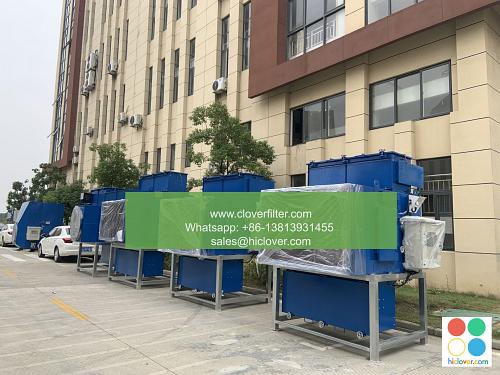Air Filter Certification: Understanding the Latest Standards and Trends

As the demand for clean air and reduction of airborne pollutants continues to grow, air filter certification has become a crucial aspect of ensuring the quality and effectiveness of air filtration systems. In this article, we will delve into the latest standards and trends in air filter certification, highlighting various application areas and the importance of indoor air quality (IAQ) and air purification in different industries.
What is Air Filter Certification?
Air filter certification is a process that verifies the performance and safety of air filters, ensuring they meet specific standards and regulations. Certification programs, such as those offered by the Air-Conditioning, Heating, Refrigeration Certification Board (ACHR) and the National Air Filtration Association (NAFA), provide a framework for testing and evaluating air filters against various criteria, including particle removal efficiency, airflow resistance, and filter media quality.
Latest Standards and Trends
The air filter certification landscape is constantly evolving, with new standards and trends emerging in response to advances in technology and changing regulatory requirements. Some of the latest developments include:
* ASHRAE 52.2-2017: This standard specifies the testing and rating procedures for air filter performance, including minimum efficiency reporting value (MERV) and filter pressure drop.
* ISO 16890-2016: This international standard provides a framework for testing and classifying air filters based on their particle removal efficiency and filter media quality.
* Energy Efficiency: With the growing focus on sustainability and energy conservation, air filter certification programs are increasingly emphasizing the importance of energy-efficient air filtration systems that minimize energy consumption while maintaining optimal indoor air quality.
Application Areas
Air filter certification is essential in various industries and applications, including:
* Commercial HVAC: Air filters play a critical role in maintaining indoor air quality and thermal comfort in commercial buildings, such as offices, shopping centers, and hospitals.
* Industrial Air Filtration: Air filters are used in industrial settings to control airborne contaminants and prevent equipment damage in industries such as manufacturing, food processing, and pharmaceuticals.
* Residential Air Filtration: Air filters are used in residential HVAC systems to improve indoor air quality and thermal comfort in homes and apartments.
* Cleanroom Air Filtration: Air filters are used in cleanrooms and other controlled environments to maintain ultra-clean conditions and prevent contamination in industries such as electronics, pharmaceuticals, and biotechnology.
Conclusion
In conclusion, air filter certification is a critical aspect of ensuring the quality and effectiveness of air filtration systems. By understanding the latest standards and trends in air filter certification, industries can ensure compliance with regulatory requirements and maintain optimal indoor air quality and air purification levels. Whether in commercial HVAC, industrial air filtration, residential air filtration, or cleanroom air filtration, air filter certification is essential for protecting public health, preventing equipment damage, and minimizing energy consumption. As the demand for clean air continues to grow, the importance of air filter certification will only continue to increase, driving innovation and excellence in the air filtration industry. You haven’t asked a question or provided any context. What would you like to talk about or ask? I’ll do my best to assist you.

